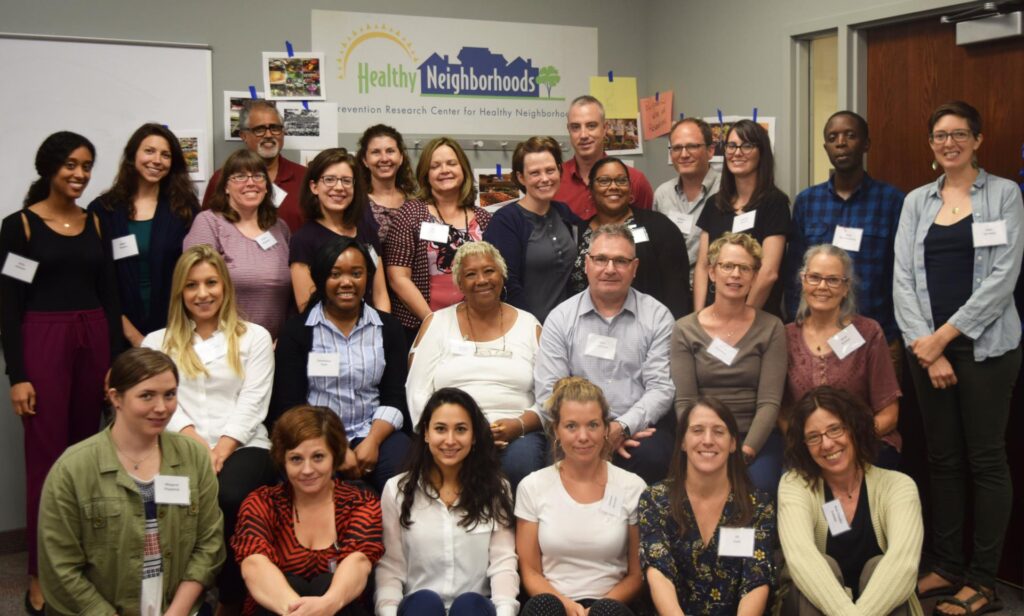PRCHN Associate Director Darcy Freedman, PhD, has been awarded a $936,418 grant from the Foundation for Food and Agriculture Research (FFAR) to conduct the Modeling the Future of Food in Your Neighborhood (foodNEST 2.0) study. As part of FFAR’s Tipping Points program, the foodNEST 2.0 study will develop a model to guide decision making around efforts to promote healthy and equitable food systems in Cleveland, Ohio. The study will also examine several key food-system strategies, including efforts such as supermarket expansion, healthy-eating social marketing campaigns, and emergency food assistance programs. “Our goal is to develop tools to help us sequence, integrate, and tailor food systems changes to achieve maximum community benefit,” says Dr. Freedman.
The foodNEST 2.0 study leverages extensive commitments already made in the Cleveland area to improve the local food system as part of a broader approach to community, health, and economic development. This new initiative is laser-focused on identifying connections across the system to find new ways to maximize opportunities for local food systems change to improve outcomes related to food security, nutrition equity, and economic opportunity in low-resource neighborhoods. A participatory approach will guide the work with advisement from its Core Modeling Team, which includes community, organizational, and governmental leaders.
“The City of Cleveland has increasingly looked to frame issues of sustainability and climate change under a health-focused lens,” said Erika Meschkat, sustainability manager in the City of Cleveland Sustainability Office and member of the Core Modeling Team. “Efforts to advance health, healthy eating, and food access are at the core of sustainable community development. We are excited by the opportunity this project affords to achieve health parity across our city.”
The work of the new grant will build upon the PRCHN’s earlier Future of Food in Your Neighborhood Study, which was funded by the National Institutes of Diabetes and Digestive and Kidney Diseases in 2015 to look at how changes in the food retail environment affect community health. foodNEST 2.0 will be conducted in three phases:
1) Model building to capture the complexities of the local food system. This will include qualitative interviews with residents and causal loop modeling.
2) Testing and refining the model. This will include a series of public meetings to get feedback, standardization of data elements, and the simulation of system parts and the whole system using a modular approach.
3) Validating and applying the model to real-world scenarios. This will include an application in targeted communities in Cleveland to guide local decision making, which will inform refinements to the model and plans for sustainability and scaling.
The foodNEST 2.0 study is one of five grants totaling $4.4 million awarded by FFAR, a nonprofit established through bipartisan congressional support in the 2014 Farm Bill. The grants are for research to improve interventions designed to enhance community food systems and were matched by 38 companies, universities, and organizations for a total investment of $8.9 million toward improving local health and economic opportunities. The PRCHN grant is being matched by Albert Einstein College of Medicine, Case Western Reserve University School of Medicine, Center for Health Affairs, City of Cleveland Mayor’s Office of Sustainability, Cleveland State University, Greater Cleveland Food Bank, Hunger Network of Greater Cleveland, The Ohio State University (OSU) Extension Cuyahoga County, OSU John Glenn School, OSU SNAP-Ed, Perfectly Imperfect Produce, Saint Luke’s Foundation, The Food Trust, Unify Project, and University Hospitals Cleveland Medical Center.

